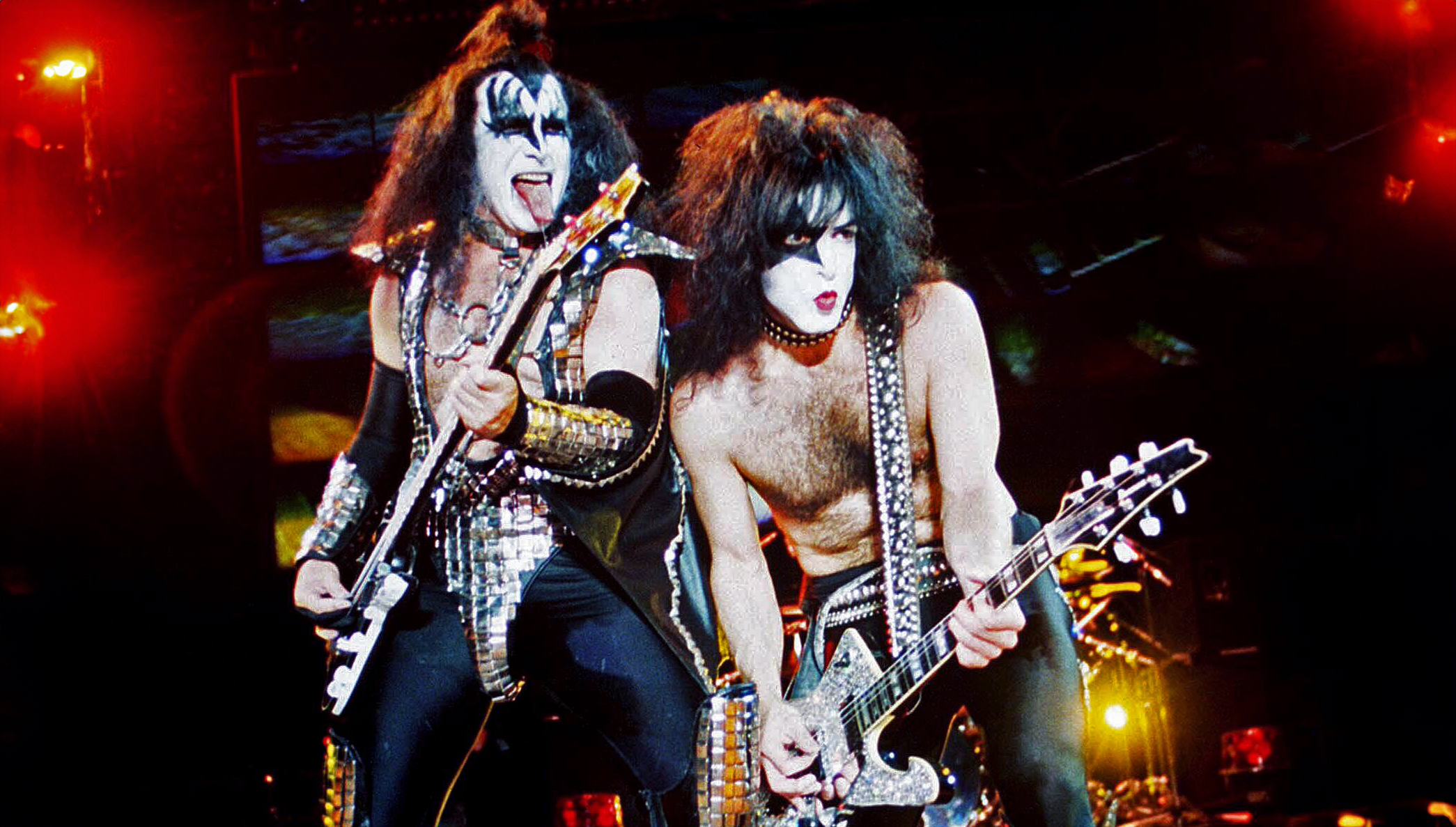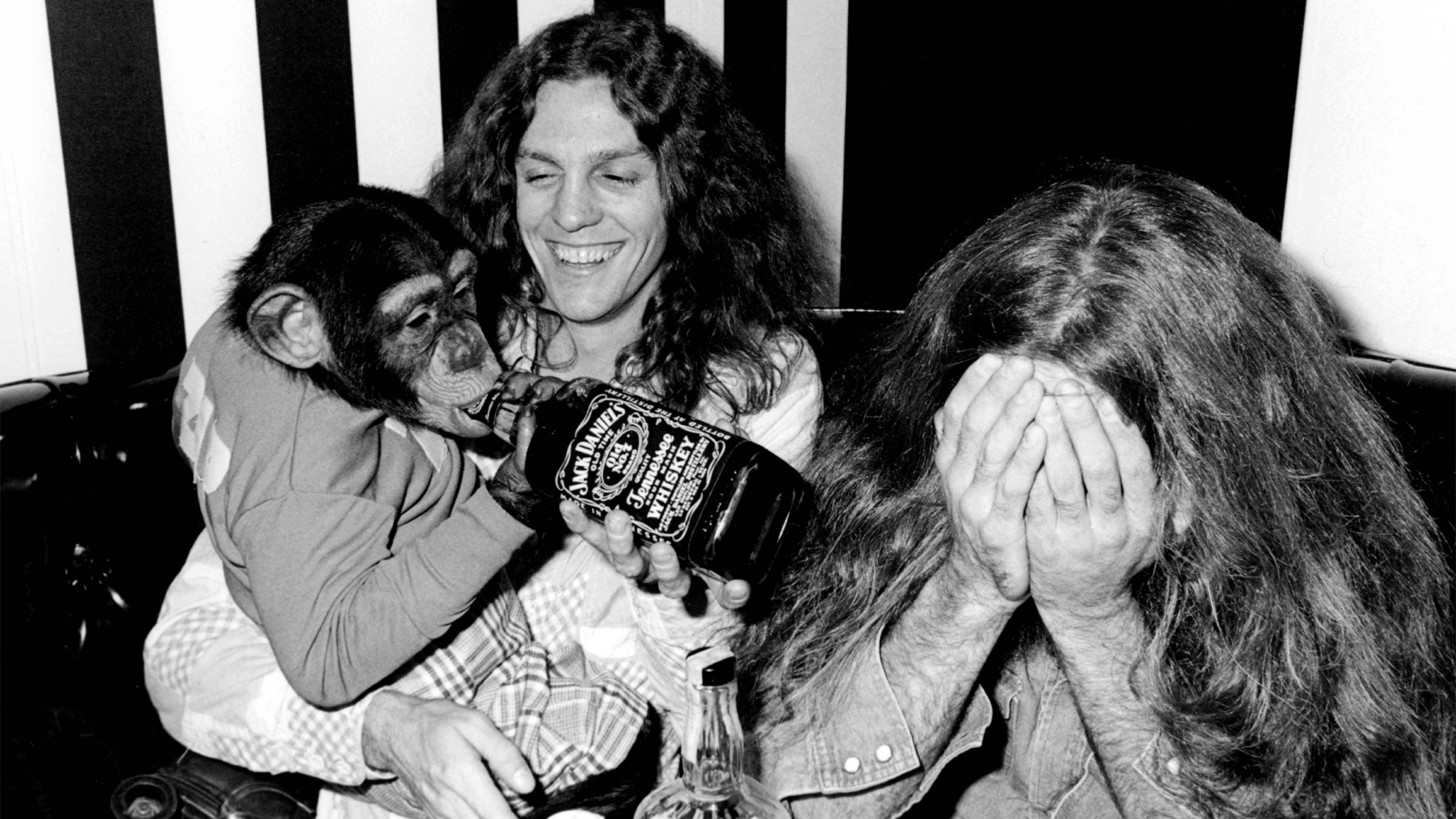“You’re everything that scares the girls of America.” Gene Simmons and Paul Stanley fought against a Kiss makeover. But it gave them their biggest hit
Producer Bob Ezrin pushed the group into uncharted waters and came out a winner with "Beth"

All the latest guitar news, interviews, lessons, reviews, deals and more, direct to your inbox!
You are now subscribed
Your newsletter sign-up was successful
As a band that made its name with outrageous makeup and costumes and a stage show that combined fire breathing and smoking guitar pickups, Kiss was certainly not known for its subtlety.
But as the group's producer Bob Ezrin says in a new interview, that's exactly why everyone sat up and paid attention when Kiss released a piano ballad devoid of the sonic trappings of electric guitar and pounding drums heard on their previous singles.
The song in question, is "Beck," from the group's fourth studio album, 1976's Destroyer. Co-written by Kiss drumer Peter Criss, his former bandmates Stan Penridge and Ezrin,
“It was such a big departure for them,” Ezrin tells CBS News’ The National.
But it was just what the band needed following a difficult start to their recording career. The three studio albums that preceded Destroyer — Kiss, Hotter Than Hell and Dressed to Kill — failed to capture the band at its best, in Paul Stanley’s estimation.
That changed with Alive!, the group's 1975 live album, which purported to capture the group's raw energy direct from the concert stage. In fact, the album was heavily reworked in the studio — even the audience was faked, according to some sources — but it didn't matter. Alive! was the hit the group needed. It not only saved their careers — it saved their label, Casablanca, from bankruptcy.
In a bid to continue moving in a more commercially viable direction, Kiss enlisted Ezrin’s production talents. The producer was renowned for his work behind the desk across a successful four-album run with Alice Cooper — from 1971's Love It to Death to 1973's Billion Dollar Babies — alongside his work with Lou Reed and Aerosmith. The band saw him as the Svengali who could take them to the next level.
All the latest guitar news, interviews, lessons, reviews, deals and more, direct to your inbox!
Little did they expect Ezrin would do it with "Beth." Criss co-wrote the song with Penridge while the pair were members in the rock group Chelsea, several years before the drummer joined Kiss.
The tune was written in jest about Becky, the wife of their band's guitarist Mike Brand, who had an annoying habit of interrupting rehearsals with pestering phone calls. The original chorus featured the line, “I know you love complaining, but Beck what can I do?”
Ezrin immediately heard the song’s potential and set about revising it.
“The story about 'Beth' is that, politically, it was always important that the drummer gets at least one song,” Ezrin explains. (It's a lesson the Beatles learned all too well with their drummer, Ringo Starr.) “So we went through a bunch of songs that Peter Criss had.”
The producer, who had succeeded in bringing shock-rocker Alice Cooper a huge audience with singles like "I'm Eighteen," "School's Out" and “No More Mr. Nice Guy,” also believed it could solve one of the band’s biggest problems.
“I went to see them play live in Ann Arbor, Michigan, to 9,000 pimply 15-year-old boys,” Ezrin says of Kiss in the mid 1970s. “There wasn’t a single girl in the audience.
“We started to talk about working together, and I reminded them of an old 1950s Marlon Brando movie called The Wild One, where he was the leader of a motorcycle gang and Lee Marvin was the leader of the rival gang.
“Lee Marvin and his gang were real bad guys. On Marlon Brandon’s side, yes, they were a motorcycle gang, but he had something — and of course, the girl in the town saw that something in him and thought maybe she could fix him. And a romance grew between them.
“So I said to those guys, ‘Right now you’re Lee Marvin. You’re everything that scares the girls of America, and I would like us to do something where you become Marlon Brando — where you can still be bad boys, but there has to be an element of vulnerability.
“You have to let the girls of America feel that maybe they could fix you.”
He says he sensed “a real opportunity” with Criss’s song, even though the original version of it “was a little more jaunty, a little less vulnerable. It was kind of like, ‘Screw you, me and the boys are gonna go play.’”
Ezrin set out to change that, first by centering the arrangement around piano.
“I slowed the song way down, and it just felt like suddenly it was almost like a lullaby," he says. "It became this gentle sweet thing. And I tweaked the lyrics because I wanted it to be about the singer being the one that was hurt.”
As such, “I know you love complaining” became the more sensitive, understanding, “I think I hear you calling.”
Ironically, for a song that helped humanize the band, Criss was the only member to perform on it. Ezrin played piano, and the New York Philharmonic provided the cinematic flourishes that gave the song its magic.
Perhaps because they were mere bystanders to the song’s creation — and the fact that it lacked their usual Black Sabbath frightening bravado — Gene Simmons and Paul Stanley weren't keen to include it on the album. Reportedly, manager Bill Aucoin fought against it on the grounds that his ex-wife's name was Beth.

The song was released as the B-side to the testosterone-fueled Destroyer track “Detroit Rock City,” but to everyone's surprise, radio stations began playing "Beth." Resigning themselves to the obvious, Kiss reissued the single with the sides reversed, and "Beth" went on to reach number seven on the Billboard chart, a height no other Kiss track has topped.
“People thought it was like heresy!” Ezrin says with a laugh. "What the hell is he doing? We had this band that was cock and balls and appealed to 15-year-old boys.
"But that was the point. That was the point."
A freelance writer with a penchant for music that gets weird, Phil is a regular contributor to Prog, Guitar World, and Total Guitar magazines and is especially keen on shining a light on unknown artists. Outside of the journalism realm, you can find him writing angular riffs in progressive metal band, Prognosis, in which he slings an 8-string Strandberg Boden Original, churning that low string through a variety of tunings. He's also a published author and is currently penning his debut novel which chucks fantasy, mythology and humanity into a great big melting pot.



